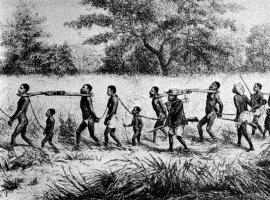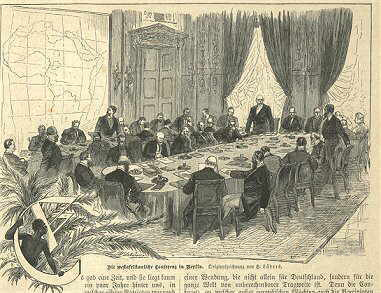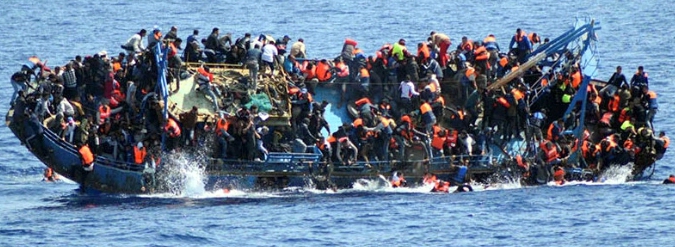The poverty that grips Africa is not a curse bestowed by divine forces nor the result of fate. It is a deliberate, calculated outcome of centuries of exploitation by Western powers. From the transatlantic slave trade to colonialism and modern economic sabotage, Africa has been systematically robbed, its wealth funneling into the coffers of the Western world while its own people are left in chains of poverty. This is not an act of God—it’s an act of man.
Western prosperity is soaked in the sweat and blood of Africans. The transatlantic slave trade transported millions of Africans to the Americas, fueling the agricultural and industrial revolutions that built the wealth of nations like Britain, France, and the United States. African labor became the foundation of Western wealth. Every field of cotton harvested by enslaved Africans, every diamond mined from the land of Africa, and every ton of rubber extracted from African vegetation, made the West prospered, while Africa languished.
Read Also: How Nigeria’s Stolen Wealth is Shaping Its Future
Imagine a thriving West African village in the 18th century where families lived together, children played, and elders guided their communities. Then, one night, slavers strike. The strongest men, women, and even children were abducted, shackled, and shipped off to foreign lands. The village becomes traumatized, and the community is left to mourn, while the stolen labor enriches the West. This is the legacy of the transatlantic slave trade: a continent robbed of its potential and forced into generations of penury.

Even after the abolition of slavery, the West found new ways to exploit Africa. The Berlin Conference of 1884-85 carved the continent into arbitrary colonies, creating borders that split ethnic groups and ignited decades of conflict. The colonial powers weren’t interested in developing Africa—they were interested in its wealth. Gold, diamonds, rubber, and oil were ripped from the earth of Africa to enrich European economies while leaving Africa in ruin.
The Belgian Congo stands as a horrific example. King Leopold II turned the Congo into a massive labor camp, where 10 million Congolese died under brutal conditions to extract rubber and ivory for European profit. This is the true cost of Western wealth—the lives and futures of millions of Africans sacrificed for the luxuries of the West.
Read Also: Nigeria’s Wicked Generations: From Slave Traders to Corrupt Youths
Even after African nations gained political independence, Western powers never relinquished economic control. Through institutions like the International Monetary Fund (IMF) and World Bank, Western nations imposed structural adjustment programs (SAPs) that devastated African economies. Nigeria, for example, saw its education, health, and agricultural sectors decimated in the 1980s under the weight of these austerity measures, plunging millions into poverty.
In this new form of economic enslavement, African countries were forced to export raw materials at low prices, while importing finished goods at inflated costs. Nigeria, the largest producer of crude oil in Africa, is forced to export its oil at rock-bottom prices, only to import refined petroleum at exorbitant costs—a trade imbalance that keeps the country impoverished while Western nations profit.

Western interests have repeatedly sabotaged Africa’s attempts to break free. Nigeria’s refineries, which could have provided the infrastructure for processing its own oil, were frustrated at every turn by powerful Western oil companies. Multinational corporations lobbied against the development of Nigerian industries to keep the country dependent on imports, ensuring that Africa remains stuck in the cycle of raw material extraction and foreign dependency.
This sabotage extends beyond industry. Libya’s Muammar Gaddafi, with his vision of a United States of Africa, was a threat to Western economic dominance. Gaddafi’s plan to unite Africa under a single currency and a central African bank would have liberated the continent from Western control. But his vision was cut short in 2011, when NATO forces intervened in Libya, leading to Gaddafi’s death and the collapse of his plan—a deliberate act of Western interference to keep Africa weak and divided.
Read Also: The Detrimental Impact of Quick-Fix Policies on Nigeria’s Development
The exploitation of Africa has not ended—it has simply evolved. Today, young Africans, facing economic hardship at home, are lured by the promise of better opportunities in the West. They embark on dangerous journeys to Europe and America, only to find themselves trapped in low-wage jobs, often under exploitative conditions. Modern-day slavery, in the form of forced labor, continues to profit Western industries, perpetuating the cycle of African poverty.
The International Labor Organization estimates that millions of Africans are trapped in forced labor, working in factories, farms, and sweatshops around the world. Their labor fuels Western economies, just as it did centuries ago, while Africa remains locked in poverty.

Africa’s future lies in reclaiming its resources and using them to benefit its people. The continent is rich in agriculture, minerals, and energy, but these resources have been systematically exploited by external powers. The key to African liberation is developing industries that process raw materials locally, creating jobs, and building economies that are independent of Western control.
Nigeria, with its vast oil reserves, fertile lands, and growing tech industry, holds the potential to lead this transformation. The emerging tech sector in Nigeria, often called “Silicon Lagoon,” is an example of how technology can revolutionize African economies. Local innovations, such as mobile apps that help farmers optimize their yields, demonstrate the power of African ingenuity to transform the continent’s resources into wealth.
Read Also: The Hidden Margins Between Politics and Governance in Nigeria
Africa’s strength lies not just in its natural resources, but in its rich cultural heritage. From music and art to fashion and literature, Africa’s cultural exports have global influence. Yet, these industries remain underdeveloped, their profits flowing to foreign corporations. By building industries around its cultural exports and protecting its intellectual property, Africa can create new sources of wealth that are independent of Western control.
The time has come for Africa to break the chains that bind it to poverty. By harnessing its resources, developing its industries, and investing in technology and education, Africa can achieve true economic independence. Nigeria, with its vast potential, must lead the charge. The future of Africa depends on its ability to unite, harness its wealth, and resist the external forces that seek to keep it poor. The fight for African liberation is not just about reclaiming resources—it’s about reclaiming the continent’s destiny.

This story exposes the harsh realities behind Africa’s poverty and the Western world’s role in perpetuating it. It calls for a new awakening—a collective effort to reclaim Africa’s wealth, develop indigenous industries, and break free from the economic chains that have held the continent back for centuries. African poverty is not inevitable, nor is it a divine decree. It is the result of systematic exploitation, and only through concerted effort can Africa rise, prosper, and take its rightful place on the global stage.
The time is now—Africa must stand strong, united, and determined to reclaim its future. Let this be a call to action for every African, every leader, and every citizen of the world who believes in justice and equality. Africa’s liberation is not just possible; it is necessary. Together, we can break the chains and build a future where Africa thrives on its terms.
African poverty is not an act of God—it is a deliberate result of centuries of exploitation and economic manipulation by the West. This blog post aims to ignite action for African economic liberation by exposing the West’s role in Africa’s poverty. It’s a clarion call to reclaim Africa’s destiny and future.
References:
Williams, Eric. Capitalism and Slavery. UNC Press Books, 1994.
UNCTAD. “Africa in the Global Economy.” UNCTAD Report 2022.
International Labor Organization. “Global Estimates of Modern Slavery: Forced Labour and Forced Marriage.” ILO Report 2020.
United Nations, Department of Economic and Social Affairs. “World Population Prospects 2022.”
© 2024 EphraimHill DC. All rights reserved.This article is the intellectual property of EphraimHill DataBlog. For permission requests, please contact EphraimHill DC at ephraimhill01@gmail.com.
in Ekiti State, Nigeria, Idowu Faleye is a Policy Analyst and IBM-certified Data Analyst with an academic background in Public Administration. He’s the Lead Analyst at EphraimHill Data Consult and the Publisher of EphraimHill DataBlog, which posts regular topics on issues of public interest. He can be reached via WhatsApp at +2348132100608 or email at ephraimhill01@gmail.com











































![The Trend of Insecurity in Nigeria. [Part 2]](https://ephraimhilldc.com/wp-content/uploads/2024/09/Computer-Monitoring-of-Remote-areas.png)


































